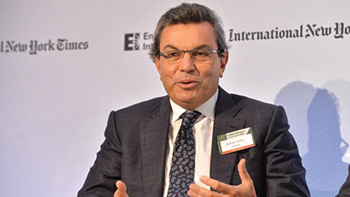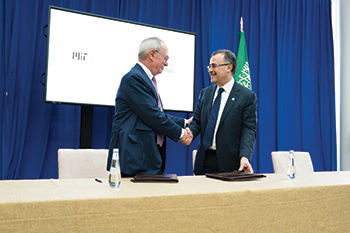

Petrofac CEO buys into firm’s shares
LONDON: Petrofac Chief Executive Officer Ayman Asfari has acquired 10 million pounds ($14 million) of shares in the oilfield services company, a regulatory filing shows.
Asfari resumed full duties this month after being suspended in the wake of an investigation launched in May by Britain’s Serious Fraud Office (SFO) into Petrofac activities in connection with a probe into Monaco-based Unaoil over suspected bribery, corruption and money laundering.
The company said last month that its top management, including the chairman and executive directors, would be interviewed by the SFO.
Asfari increased his stake in Petrofac from 18 per cent to nearly 19 per cent after acquiring more than 2 million ordinary shares at 494.113 pence per share, with a total consideration of 10 million pounds, the filing said.
Power use growth to slow: SEC

DUBAI: Growth in electricity consumption in Saudi Arabia is likely to slow to 1.5 per cent a year, down from previous expectations of 6 to 10 per cent, the chief executive of Saudi Electricity Co (SEC) said.
"We have always been planning for 6 to 10 per cent growth. Now I imagine for the future the growth will be 1.5 per cent or less than 1.5 per cent as we’ve seen over the past two years," Ziyad Al-Shiha told Al Arabiya TV in an interview.
"There isn’t more than modest growth in energy consumption," he said.
SEC shares sank 4.2 per cent after the company reported a much bigger-than-expected 5.5 billion riyal ($1.5 billion) loss for the fourth quarter of 2017, which it attributed to a shift to IFRS accounting standards.
Lukoil Q4 net more than doubles

MOSCOW: Fourth-quarter net income for Russia’s No 2 oil producer Lukoil rose to 120.5 billion roubles ($2.1 billion) from 47 billion roubles a year earlier thanks to higher oil prices and sales, Lukoil said.Analysts polled by Reuters had expected Lukoil’s October - December net income to be 111 billion roubles.
Lukoil, controlled by its president Vagit Alekperov and his deputy Leonid Fedun, has been suffering from declining rates of oil production mainly due to depleted oilfields in West Siberia.
It said its hydrocarbon output fell 0.3 per cent last year due to a global deal in which Russia agreed with Opec to curb output, as well as lower volumes of "compensation crude oil" from the West Qurna-2 project in Iraq.



































































